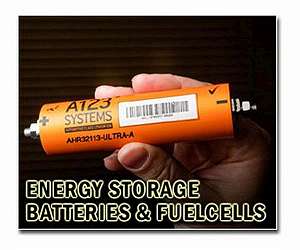Wearable devices have garnered attention for their potential as sensors that could monitor various biomarkers, a means of drug delivery, medical devices and more. In order for these wearable devices to be functional and practical, they need to have batteries that are stretchable and highly deformable.
While there has been research on how to improve battery flexibility while maintaining battery life and other desirable properties, less attention has been paid to the importance of how to protect batteries from moisture and gases. Because wearable devices are exposed to the atmosphere, it is important to extend battery life while protecting the batteries from atmospheric moisture and gases.
A team of researchers from Yokohama National University in Japan has developed a stretchable packaging film for these batteries with a high gas and moisture barrier functionality, bringing closer the possibility of wearable devices with highly deformable batteries as a common technology.
Their results were published in ACS Applied Materials and Interfaces on September 27.
“Currently, the use of solid and large batteries for stretchable device is a problem in stretchable electronics 0.75 that is, while sensors and interfaces are soft, batteries still use hard batteries,” said corresponding author Hiroki Ota of the Department of Mechanical Engineering at Yokohama National University. “Soft and stretchable batteries have been studied in the world but cannot be used in air due to the high gas and moisture permeability of the packaging materials of stretchable batteries.”
To create this flexible film with a high gas barrier, the researchers coated a thin layer of liquid metal onto a gold-deposited thermoplastic polyurethane film using the layer-by-layer method. This method allowed for the desired deformability, unlike aluminum-laminated films, which were used previously to address the issue of gas and moisture permeability but failed to allow for the needed flexibility.
According to the researchers, the resulting film shows excellent oxygen gas impermeability under mechanical strain and extremely low moisture permeability. The stretchable lithium-ion battery that they assembled in their study was able to operate reliably in air thanks to the stretchable gas barrier film that they developed.
“It is exciting that in addition to the development of a stretchable battery, which could be used in the next generation of smart devices, including future wearable devices, films with high gas and moisture barrier properties can be achieved by using a novel material called liquid metal,” Ota said.
This research holds promise of being able to use batteries that have high energy density, high working voltage and long-term stability and are also highly deformable – as opposed to bulky and inflexible – in wearable devices. As a result, the findings bring wearable devices closer to becoming more practical, which opens up opportunities in medicine and health as well as other fields.
“This research contributes to the social implementation of stretchable devices,” Ota said.
Next steps include enhancing the moisture protection ability of the film by modifying the materials. Another future direction is improving the stability of the performance of the batteries, even under deformation, by developing materials better suited for its parts. Making the film cost-effective will also contribute to eventual scalability.
“Further cost reductions of the developed film will lead to the implementation of stretchable batteries,” Ota said. “In addition, the film could be useful as a barrier film for organic electronics and so on.”
Other authors on the paper are: Nyamjargal Ochirkhuyag, Yuuki Nishitai, Satoru Mizuguchi, Yuji Isano, Sijie Ni, Koki Murakami and Masaki Shimamura, all of the Department of Mechanical Engineering at Yokohama National University; and Hiroki Iida and Kazuhide Ueno of the Department of Chemistry and Life Science at Yokohama National University.
Research Report:Stretchable Gas Barrier Films Using Liquid Metal toward a Highly Deformable Battery
Related Links
Yokohama National University
Powering The World in the 21st Century at Energy-Daily.com
|
We need your help. The SpaceDaily news network continues to grow but revenues have never been harder to maintain. With the rise of Ad Blockers, and Facebook – our traditional revenue sources via quality network advertising continues to decline. And unlike so many other news sites, we don’t have a paywall – with those annoying usernames and passwords. Our news coverage takes time and effort to publish 365 days a year. If you find our news sites informative and useful then please consider becoming a regular supporter or for now make a one off contribution. |
||
|
SpaceDaily Contributor $5 Billed Once credit card or paypal |
SpaceDaily Monthly Supporter $5 Billed Monthly paypal only |
|

![]()
UK battery firm Britishvolt near collapse: reports
London (AFP) Oct 31, 2022
Britishvolt, a UK firm developing a 3.8 billion pound factory to build batteries for electric vehicles, was on Monday on the brink of collapse, reports said.
The troubled battery start-up, championed by former prime minister Boris Johnson as part of his drive for a greener economy, has been developing the gigafactory in Blyth, northeastern England.
But it has been in emergency fundraising talks in recent weeks and could slide into insolvency as soon as Monday, the Financial Times said.
Accounting … read more
